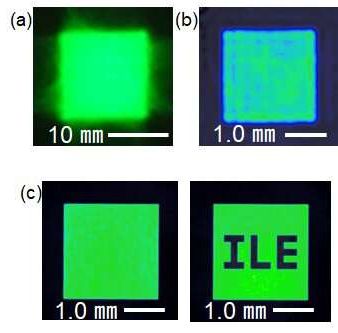Researchers from Osaka University have developed a technique for improving accuracy of laser beam shaping and wavefront obtained by conventional methods with no additional cost by optimizing virtual phase grating. The results of their research were published in Scientific Reports.
A high quality square flattop beam is in demand for various fields, such as uniform laser processing and medicine, as well as ultrahigh intensity laser applications for accelerators and nuclear fusion. Beam shape is key to realizing the laser’s potential abilities and effects. However, since beam shape and wavefront vary by laser, beam shaping is essential for producing the desired shapes to respond to various needs.
Static and adaptive beam shaping methods have been developed for various applications. With Diffractive Optical Element (DOE) as a static method, edge steepness and flatness are low and wavefront becomes deformed after shaping. (Figure 1 (a)) In addition, computer-generated hologram (CGH) as a typical adaptive method has the same difficulties.
